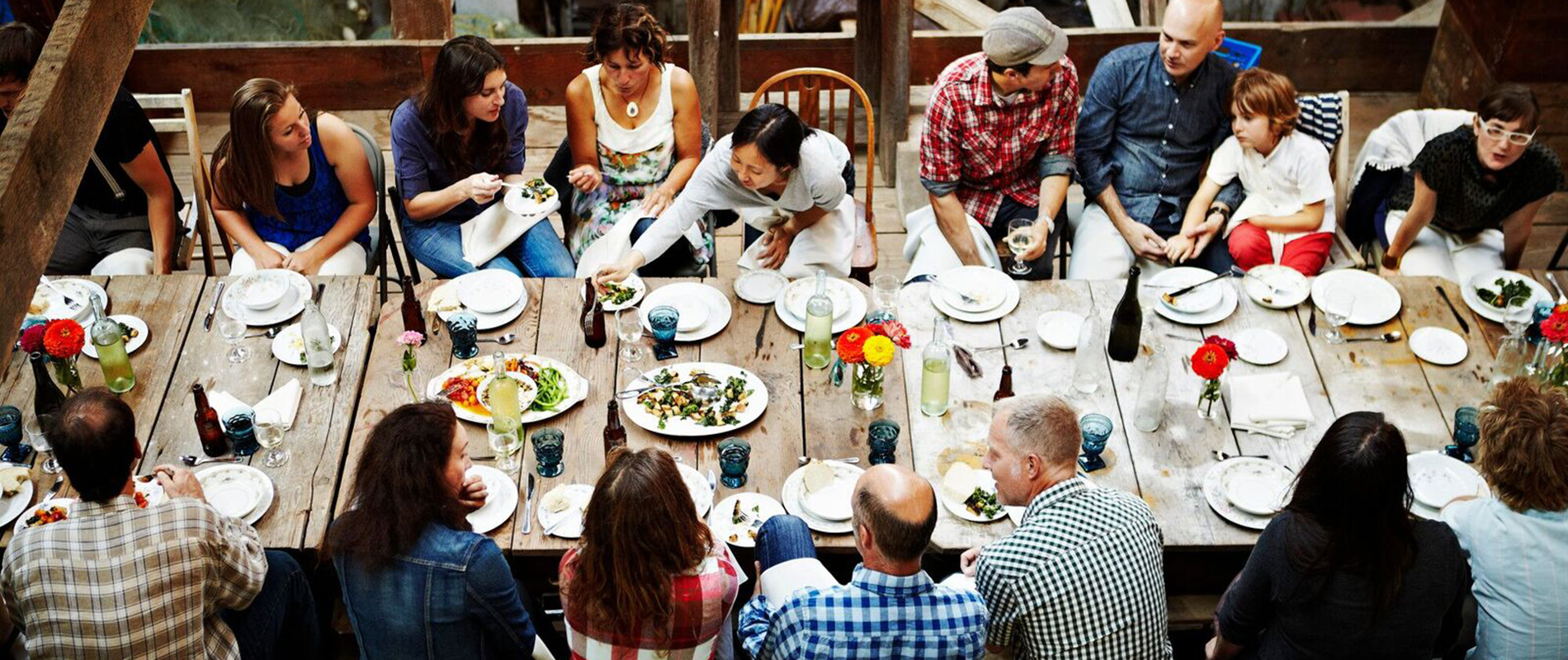A few years back, Guy Michlin was traveling through Greece when a chance meeting with a local family snagged him an invitation to share a meal in their home. Eating authentic Greek food and getting an up-close look into the culture was an unforgettable experience, the highlight of Michlin’s trip.
A light bulb went off. Why not create a brand-new opportunity for travelers—to eat in people’s homes around the world—thought Michlin. He paired up with his friend Shemer Schwarz, and the duo founded EatWith. Suddenly, culinary entrepreneurs—from home cooks to professional chefs—had a platform to share their passion and monetize their craft. And travelers had a chance to experience how people really live and eat, something you don’t usually get while dining in a restaurant. “Food brings people together,” says Michlin.
EatWith is just one example of hyperlocal travel, a new sector of the vacation industry that is transforming the way people see the world. When flying to the Caribbean, for example, Tradewind travelers can use it to get in touch with locals and experience another culture in a truly profound way.

Photo credit: EatWith
This fast-growing category of peer-to-peer travel is taking the sharing economy made famous by brands like Airbnb and Uber to a whole new level. It’s also being fueled by the digital revolution, which has created easy tools to connect people across the globe in ways that were unheard of in the pre-Facebook era.
Vayable is another hyperlocal company that has created a marketplace for all kinds of unique experiences worldwide. Want to see street art and eat well in Los Angeles? Melanie P., a plugged-in local, will guide you around Venice, one of the city’s coolest neighborhoods. Heading to Chicago and interested in the nightlife there? You can hook up with Philip H., a special event producer, and check out the hottest clubs and lounges in the city.
The trailblazing Vayable was founded in 2011 by Jamie Wong, who saw a huge gap in the travel market around easy-to-find and easily bookable experiences. It has grown to include more than 13,000 offerings in 1,000 cities. “Travelers have discovered that the more personal, customized, and connected their travel is, the more meaningful it becomes, and therefore more valuable it becomes,” says Wong.
Ferran Adrià is one of the most innovative chefs on the planet—the man who created Spain’s legendary restaurant-turned-food foundation El Bulli and developed a radical new style of molecular gastronomy. So it says a lot that he is one of the investors behind a Barcelona-based startup called Trip4real, which is focused on European locations but expanding globally. Like Vayable, Trip4real allows locals to become micro-entrepreneurs, sharing their passions, interests, and hobbies with travelers.

Photo credit: EatWith
For instance, instead of waiting in line for the Sagrada Familia in Barcelona and seeing what everyone else sees, Trip4real will connect you with a local family that actually lives in a Modernist house nearby. “I believe you only truly know a place when you connect with someone local and that traveling is about people, not just places,” says founder Gloria Molins.
Another contender in the hyperlocal space is the just-launched Gibby Road, which caters to travelers in Los Angeles, New York City, Las Vegas, Detroit, the Hamptons, and select international cities. The owners came up with the idea at Surf Lodge, a popular nightclub-slash-restaurant-slash-hotel on Gibson Street in Montauk. Because one of their friends worked at Surf Lodge, they were able to walk right in, skipping the line of 40 to 50 people waiting for entry. They realized that by knowing the right people, travelers could go to the best events, get into the bars with the most challenging door policies, and enjoy the most local experiences possible.
“The next generation of travel is about experiences,” says cofounder Rachel Harrison. “Instead of bragging about what five-star hotel you stayed at, people are now talking about the unique experiences and the stories of their trips.”
The hyperlocal industry is exploding and the possibilities are endless. Want to hang out with chefs? BookaLokal is the source. In Europe, Mexico, or Brazil and need a free ride somewhere? BlaBlaCar will hook you up with a local (it’s a safer version of hitchhiking). Want to make sure the photographs from your vacation are amazing? Hire a company like Flytographer or Localgrapher to send a local photographer to document your trip. “I think that it´s absolutely amazing when you can combine getting to know someone local together with some useful service that is provided to you by the same person,” says Localgrapher founder Matej Slezak.

Photo credit: Vayable
There are even hyperlocal apps that will do the connecting for you, like UrbanBuddy or Spotted Places, a startup that is in beta mode in Seattle. “Spotted Places allows users to follow their friends, family, or other individuals they find interesting such as influencers and celebrities. By seeing the spots these individuals recommend on a map, users can always know the top recommendations near them,” says Bryant Hawthorne, founder of Spotted Places. “Think of it as Pokémon GO for experiences.”
And the company ViaHero takes the whole idea of hyperlocal travel one step beyond: It is a platform where you can find a local who will act like a travel agent and actually plan your entire trip. ViaHero launched in Cuba—a destination where the main draw is the vibrant local culture—and is currently expanding into Iceland. On the horizon: Croatia, Japan, and New Zealand.
“Peer-to-peer platforms are often cheaper, you deal with real people instead of corporations, and you can use the opinion of the crowds to determine the quality of what you’re getting,” says ViaHero founder Greg Buzulencia. “Five years ago peer-to-peer platforms seemed riskier, but today they are the standard for trustworthiness.”
Featured image courtesy of EatWith

